In today’s competitive job market, possessing the right skills is essential for achieving success in the workplace. Critical thinking, effective communication, and adaptability are key skills that individuals need to navigate challenges and seize opportunities. Employers increasingly seek candidates who can not only perform specific tasks but also contribute positively to team dynamics and organizational goals.
Additionally, technical proficiency tailored to the industry, along with strong problem-solving abilities, can significantly enhance career prospects. Staying updated with industry trends and continuously improving one’s skill set allows individuals to remain relevant and valuable contributors in their fields.
In an era where collaboration and innovation drive success, professionals who emphasize interpersonal skills and a growth mindset are better positioned to thrive. Adopting these skills can lead to more meaningful career advancement and satisfaction.
Core Skills for Workplace Success
Effective communication, teamwork, and adaptability are essential skills that contribute significantly to a successful career. Individuals who master these skills can navigate complex environments and foster productive relationships in the workplace.
Importance of Communication Skills
Communication skills are foundational for any role. Clear verbal and written communication allows for effective information exchange, reducing misunderstandings.
Key points include:
- Active Listening: This involves paying full attention, understanding, and responding thoughtfully.
- Presentation Skills: The ability to convey ideas clearly and persuasively can influence decision-making.
- Non-verbal Communication: Body language can greatly impact how messages are perceived.
Individuals who excel in communication foster collaboration and build stronger connections with colleagues.
The Role of Teamwork and Collaboration
Teamwork is crucial in achieving common goals. In today’s work environment, collaboration among diverse teams drives innovation and efficiency.
Consider these points:
- Diverse Perspectives: Teams benefit from varied backgrounds and experiences, leading to creative solutions.
- Conflict Resolution: Skills in addressing and resolving disputes can strengthen team dynamics.
- Shared Responsibility: Collaborative efforts encourage accountability and improve overall performance.
Effective teamwork fosters a positive workplace culture and enhances productivity.
Adaptability and Continual Learning
In a rapidly changing work environment, adaptability is vital. Professionals must be open to new ideas and willing to embrace change.
Essential aspects include:
- Flexibility: Adapting to new situations and shifting priorities enables smoother transitions.
- Problem-Solving: The ability to tackle unexpected challenges is highly valued.
- Commitment to Learning: Continual learning through training and development opportunities enhances skills and knowledge.
Being adaptable not only prepares individuals for change but also positions them as valuable assets to their organizations.
Advanced Competencies in the Modern Workplace
In today’s rapidly evolving workplace, advanced competencies are critical for individuals looking to thrive. Key areas such as technical proficiency, leadership qualities, and strategic thinking play significant roles in fostering professional success.
Technical Proficiency and Industry Knowledge
Technical proficiency involves a deep understanding of relevant technologies and industry-specific tools. Employees must stay updated on trends impacting their sectors, including software advancements and emerging methodologies.
Essential Skills:
- Technical Skills: Knowledge of coding, data analysis, or engineering principles can enhance job performance.
- Industry Trends: Keeping informed about market dynamics helps anticipate changes that affect business outcomes.
Professionals should engage in continuous learning through courses, workshops, or industry certifications to maintain their edge.
Effective Leadership and Emotional Intelligence
Effective leadership extends beyond management tasks to include emotional intelligence (EI). Leaders with high EI are better equipped to navigate team dynamics, foster collaboration, and resolve conflicts.
Core Attributes:
- Communication Skills: Clear and persuasive communication is vital for team guidance.
- Empathy: Understanding team members’ perspectives can enhance morale and productivity.
These leadership qualities enable individuals to motivate others and create supportive work environments, driving overall team success.
Strategic Thinking and Business Acumen
Strategic thinking involves analyzing complex situations and making decisions that align with business goals. Professionals equipped with strong business acumen can identify growth opportunities and potential risks.
Key Components:
- Analytical Skills: Ability to interpret data for informed decision-making.
- Market Awareness: Understanding competitors and customer needs to craft effective strategies.
Cultivating these competencies allows individuals to contribute to long-term business strategies, ensuring organizational resilience and adaptability in a competitive landscape.
Supporting Personal and Organizational Growth
Effective growth in the workplace requires mastery of certain skills. Key areas include managing time and productivity, fostering creativity, and cultivating resilience. These factors directly influence personal effectiveness and contribute to organizational success.
Time Management and Productivity
Time management is critical for achieving both personal and organizational goals. Prioritizing tasks through methods like the Eisenhower Matrix helps individuals focus on what is urgent and important.
Tools such as calendars and project management software enhance productivity by providing structure. Regularly reviewing and adjusting schedules allows for increased efficiency and minimizes stress.
Establishing a routine encourages consistent work habits, essential for long-term success. Techniques like the Pomodoro Technique promote sustained focus while reducing burnout.
Fostering Creativity and Innovation
Creativity drives innovation, essential for organizations to remain competitive. Creating a culture that encourages experimentation allows teams to generate new ideas without the fear of failure.
Organizational leaders can support creativity by providing resources for brainstorming sessions and workshops. Diverse teams often yield better results, as different perspectives lead to unique solutions.
Encouraging open communication and feedback also sparks innovative thinking. Recognition of individual contributions further nurtures an environment conducive to creative development.
Cultivating Resilience and Morale
Resilience is crucial for navigating workplace challenges. Developing coping strategies, such as stress management techniques and problem-solving training, equips individuals to handle setbacks.
Workplace morale directly impacts productivity. Positive reinforcement, team-building activities, and clear communication help maintain high spirits.
Promoting a growth mindset encourages employees to view challenges as opportunities for learning. It reinforces the value of perseverance and adaptability, essential traits for both personal and organizational growth.
Investing in these areas builds a strong foundation for lasting success in any workplace.
